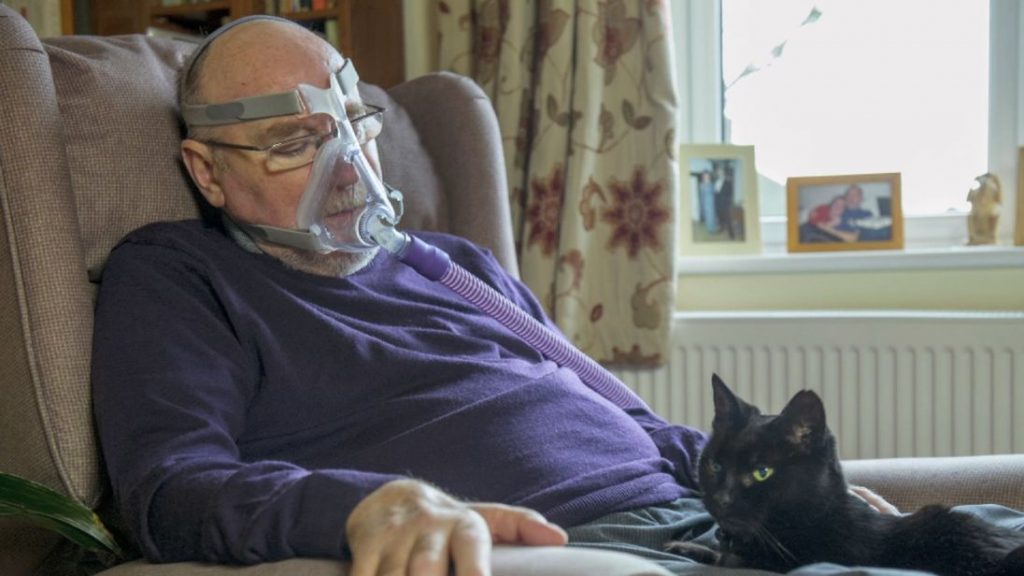Motor Neuron Disease or MND is an uncommon condition that affects the brain and nerves.
What is Motor Neuron disease?
It is also known as ALS, describes a group of diseases that affect the nerves (motor neurons) in the brain & spinal cord that tell your muscles what to do. Motor Neuron Disease can affect how a person talks, walk, eat, drink and breathe. However, not all patient has developed all the symptoms. The signs may not happen at the same time or in any specific order.
Types
There are several types of motor neuron disease.
ALS, or Lou Gehrig’s disease, is the most common type, affecting muscles of the arms, legs, mouth, and respiratory system. Mean survival time is 3 to 5 years, but some people live ten years or more beyond diagnosis with supportive care.
Progressive bulbar palsy (PBP) involves the brain stem. People with ALS often have PBP too. The condition causes frequent choking spells, difficulty speaking, eating, and swallowing.
Progressive muscular atrophy (PMA) slowly but progressively causes muscle wasting, especially in the arms, legs, and mouth. It may be a variation of ALS.
Primary lateral sclerosis (PLS) is a rare form of MND that advances more slowly than ALS. It is not fatal, but it can affect the quality of life. In children, it is known as juvenile primary lateral sclerosis.
Spinal muscular atrophy (SMA) is an inherited MND that affects children. There are three types, all caused by an abnormal gene known as SMA1. It tends to affect the trunk, legs, and arms. The long-term outlook varies according to type.
Why does it happen?
Some Motor Neuron disease are inherited while others happen randomly. The exact causes are unclear, but the National Institute of Neurological Diseases and Stroke (NINDS) notes that genetic, toxic, viral, and other environmental factors likely play a role.
Early stage signs and symptoms
Symptoms develop slowly and can be confused with symptoms of some other unrelated neurological conditions.
- a weakening grip, making it hard to pick up and hold things
- muscle pains, cramps, and twitches
- slurred and sometimes garbled speech
- weakness in the arms and legs
- increased clumsiness and stumbling
- difficulty swallowing
- trouble breathing or shortness of breath
Middle stage signs and symptoms
As the condition progresses, symptoms become more severe.
- Muscle pain and weakness increase, and spasms and twinges worsen.
- Limbs become progressively weaker.
- Limb muscles start to shrink.
- Movement in affected limbs becomes more difficult.
- Limb muscles may become abnormally stiff.
- The joint pain grows.
- Eating, drinking, and swallowing become harder.
- Drooling occurs, due to problems controlling saliva.
- Yawning occurs, sometimes in uncontrollable bouts.
- Jaw pain may result from excessive yawning.
- Speech problems worsen, as muscles in the throat and mouth become weaker.
Advanced stage signs and symptoms
Eventually, the patient will be unable to move, eat, or breathe without assistance. Without supportive care, an individual will pass away. Despite the best of care currently available, complications of the respiratory system are the most common causes of death.
Who mostly gets Motor Neurone Disease?
Motor neurone disease is an uncommon condition that mainly affects people in their 60s and 70s, but it can affect adults of all ages. It’s caused by a problem with cells in the brain and nerves called motor neurones. These cells gradually stop working over time. It’s not known why this happens.
Having a close relative with motor neurone disease, or a related condition called frontotemporal dementia, can sometimes mean you’re more likely to get it. But it doesn’t run in families in most cases.
Treatment for Motor Neurone disease
The treatments for the disease is focusing on slowing the progression and maximising patient independence and comfort. This can include the use of breathing, feeding, mobility and communication appliances and devices. Rehabilitation therapy may include physical, occupational and speech therapy.y
Breathing problems
Mechanical ventilation can help with breathing. A machine takes in air, filters it, and pumps it into the lungs often through a tracheostomy, a surgical hole in the neck that allows for assisted breathing. Some people use complementary therapies, including special diets that are high in vitamins. These will not cure Motor Neurone disease but following a healthful diet can improve overall health and wellbeing.U
Speech, occupational and physical therapy
Patients with speech and communication difficulties may learn some useful techniques with a qualified speech and language therapist. As the disease advances, patients often need some communication aids. Physical and occupational therapy can help maintain mobility and function and reduce stress.
Get Insurance Advice
Financial Security – It is There When Needed
Levine can help you to protect yourself and the future of your loved ones. Get immediate financial security. Don’t touch your savings. Let insurance provide it.
She can help provide financial security in times of hardship and will be able to ease the financial burden of your dependents in your absence.
Contact our AIA INSURANCE AGENT LEVINE LEE to get in touch with us and start your personal coverage, group coverage or choose your plan now. Get covered correctly. Be advised correctly. Call Levine Lee (+6012-684 0948) today to be advised on the best insurance protection personalized for you. Or send us the form below on your interest.
Personal Life Insurance - Request for Quotation
At Red Cover Life Planning, we emphasize our people- helping them grow, expanding their abilities, and discovering new opportunities. Join us now to be part of our team and story.
